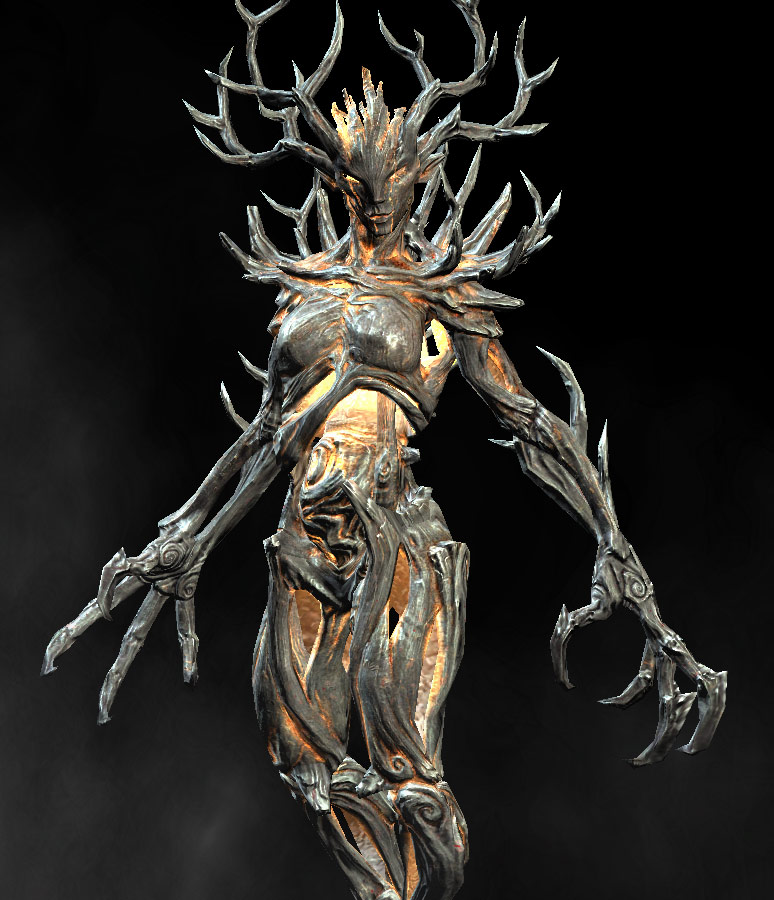I
think that the humanities are vital to our understanding of “nature” since it
is a complex concept that stretches across many disciplines of study. If we were to merely look at this concept and
phenomenon through things likes chemistry and ecology, then we would be failing
to understand a significant portion of “nature”. The word “nature” itself has two basic
definitions, one is the physical world and the forces within in, but another is
the traits and characteristics that define something.
This is a video about the video game, Skyrim, and in that game are these humanoid-tree creatures
 these things, that attack you if you go out into the wilderness and run into them.
these things, that attack you if you go out into the wilderness and run into them.
Now, this clip is relevant to this essay, because in it the player and the humanoid-tree have a conversation/confrontation that illustrates the different definitions of "nature". Skip to 1:27 and watch until 2:00. Also, there is swearing, so if that's offensive, then....
In his essay The Historical Roots of Our Ecological Crisis, Lynn White touches
on this dichotomy in the first paragraph—he mentions Aldous Huxley’s discussion
of “a favorite topic: Man’s unnatural treatment of nature and its sad results.” Huxley appears to have a different idea of
how humanity should be interacting with nature than others. In this sentence, White uses the two
different meanings of the word “nature” in conjunction with each other. He goes on to his main point, which is that
the mainstream Christian view of a
natural relationship with nature is actually quite harmful to the
environment. It is this second
definition, “natural” that is the realm of the humanities. What one believes to be “natural” is quite
subjective, as White’s mention of Huxley’s view demonstrates.
An example of this confusion and
ambiguity of interpretation can be found in the argument surrounding gay
rights. Someone may say that homosexual
behavior is “unnatural” and therefore should be discouraged. This implies that heterosexual behavior is “natural”
and therefore intrinsically better
than other sexual behaviors. But the same idea of what is “natural” can also be
used to the opposite effect—someone may say that since all individuals are born
with their sexual preference already in existence it is therefore “natural” for
homosexuality to exist. They may also
point to examples of other animals besides humans who exhibit homosexual behavior,
and say that homosexuality is not just an abnormal behavior created by the human
race, it is common to all animals, therefore it is “natural” and should not be
discouraged. Both of these statements present
slightly different definitions of what qualifies as “natural” with vastly
different outcomes.
This definition of “nature” has a
strong philosophical quality to it, and is most often first found in religions,
therefore it requires knowledge outside of the disciplines of science to
understand it completely. And we must
understand it completely. Throughout
history, failures to understand have often resulted in catastrophes. For example, if the Medieval Europeans had
better understood their fear of witchcraft, prejudices against practitioners of
Paganism or other non-Christian religions, and the motivations behind the
publication of the Malleus Maleficarum, then
there would have been less mass hysteria and less people tortured and murdered
for non-existent crimes.
So, a failure to understand the human perspective on something, “nature”
in this case, is a failure to understand its true depth and significance.
I tried to link out to a website showing the failings of the Malleus Maleficarum, but there wasn't one source that had everything I wanted it to say without a bunch of expository stuff. So do your own research because I have to go rake leaves.
No comments:
Post a Comment